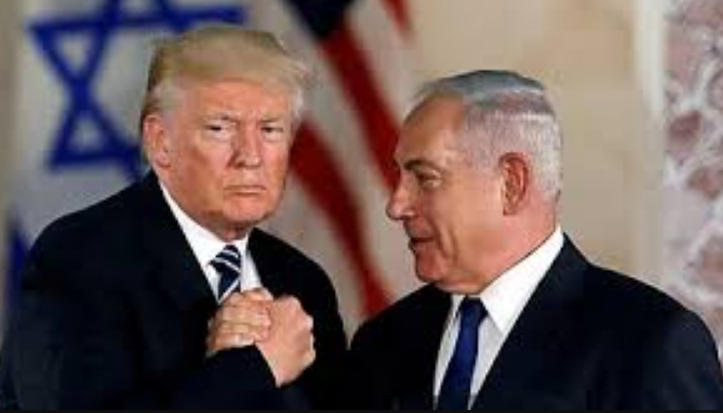
Israel-Iran Conflict Widens Global Rift: Trump Backs Netanyahu, Europe Urges Caution, Tehran Finds Allies
Anxiety and worry appear to have engulfed nations worldwide as the crisis between Israel and Iran intensifies, as they become increasingly concerned about the implications for the West Asian region and beyond. Three groups of countries have emerged from the conflict: those who openly support Israel, those who openly support Iran, and those who are keeping a close eye on the upheaval and calling on both sides to de-escalate.
Under President Trump’s leadership, the United States has forcefully supported Israel’s military campaign against Iran, calling for Iran’s “unconditional surrender” and offering the Jewish state both diplomatic and possible military support, including the sharing of advanced weapons and intelligence. Trump’s remarks later made it apparent that the attack occurred with Washington’s approval, despite the US publicly distancing itself from the Israeli strikes on Iran. He wrote on social media that “everyone should immediately evacuate Tehran!” and that Iran cannot possess a nuclear weapon.
While the majority of European nations and the G7 have condemned Iran and supported Israel politically, some, like French President Emanuel Macron, have warned against regime change in Iran out of concern for regional instability. Macron stated, “We do not want Iran to acquire a nuclear weapon.” However, using military operations to overthrow the regime would be the largest mistake because anarchy would ensue. It is our duty to resume talks as soon as possible so that we can reroute the nuclear and missile issues. Meanwhile, the UK has hinted at potential military assistance for Israel. Rachel Reeves, the British finance minister, had already stated that the government might back the Jewish nation.In a television interview, she stated, “We’re sending in assets to protect ourselves and possibly to support our allies.”
President Recep Tayyip Erdoğan supported Tehran’s conduct and retaliatory strikes on Israel, stating that Iran has the right to self-defence. Erdogan compared Netanyahu to Adolf Hitler and referred to Israel as a “terror state.” Erdogan stated in Ankara on Wednesday that Iran’s self-defence against Israel’s state terrorism and banditry is “completely natural, legitimate, and lawful.” In terms of genocide, Netanyahu has long outperformed the despot Hitler, he claimed. We hope that their outcomes will differ. Additionally, Erdogan declared, “We are doing everything we can to stop this inhumane aggression against our neighbour Iran, Gaza, Syria, Lebanon, and Yemen.”
In order to balance its interests between Tehran and its own relations with Israel, Russia, a close ally of Iran, particularly after 2022, has denounced Israeli strikes but refrained from offering direct military assistance. Moscow is cautious about Iran’s nuclear aspirations but fears losing an ally if Iran collapses. In the meantime, Moscow has urged the US to avoid getting involved in the fight, claiming that doing so would drastically destabilise the whole situation.
China is concerned about conflict disruptions, particularly if the Strait of Hormuz is sealed, as it depends heavily on discounted Iranian oil. Although Beijing has openly condemned Israel, it has refrained from openly endorsing Iran, choosing instead to remain neutral. On Wednesday, however, it was reported that China had dispatched multiple cargo planes to Iran. According to a Telegraph article, the day after Israel bombed Tehran, a cargo jet left China for Iran. According to the report, as the violence intensified, two more planes departed China in the days that followed.
Israeli strikes have drawn public criticism from a number of Gulf and Levant nations. On the other hand, some Sunni Arab nations may covertly applaud Iran’s destabilisation since they see it as a destabilising power. The new Syrian government is keeping quiet while striking a balance between cautious diplomacy towards Israel and animosity towards Iran. In the meantime, Qatar has fully supported its close ally Iran.
India, which is still close to both Israel and Iran, has called on the two countries to defuse the situation. India advises both parties to refrain from taking any further drastic measures. The situation should be de-escalated and underlying concerns should be resolved by using the diplomatic and communication channels that are currently in place. New Delhi stated, “India stands ready to extend all possible support and enjoys close and friendly relations with both countries.” It also distanced itself from a joint statement released by the Shanghai Cooperation Organisation (SCO) that condemned Israeli strikes on Iran.
Many fear that if Iran strikes oil infrastructure or blocks important sea routes, the battle might turn into a larger regional war that would enlist the help of several nations and destabilise energy supplies.
With big powers like China and Russia negotiating a precarious middle ground, the crisis is dividing the world into factions that are primarily connected by strategic interests rather than ideology—the US and Israel versus Iran and its supporters.
Despite fierce combat, experts caution that a permanent truce or diplomatic settlement is still unlikely and that the war’s course will influence West Asia’s geopolitics and the world’s energy markets for years to come.


